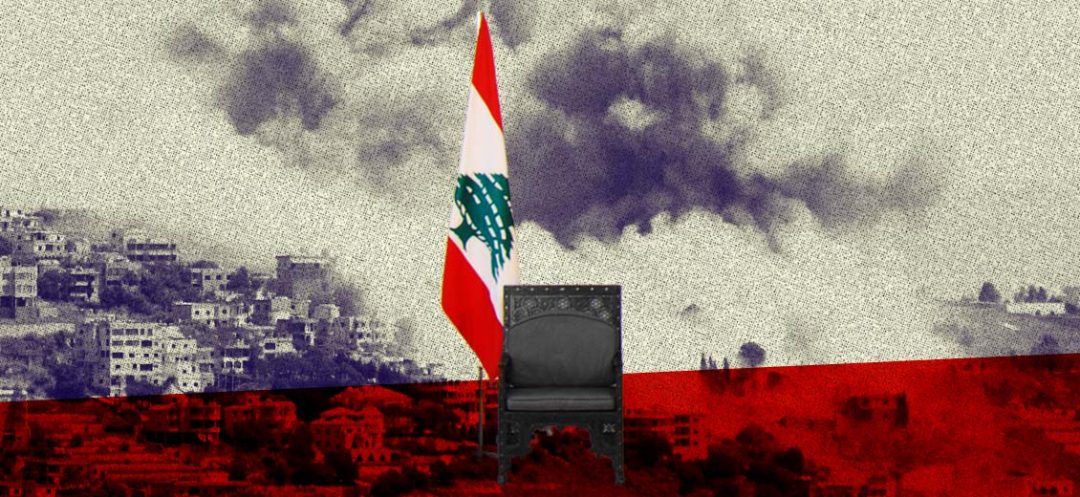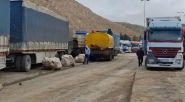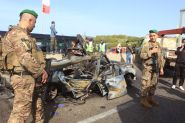
From all sides, the only consistent message is that the war in Lebanon is likely to be long. A nightmare for the population. Each player promises victory to their own side. The people are just a detail, of course. As Stalin once said, "One death is a tragedy, a million deaths a statistic."
A ceasefire is nowhere in sight. The Arab League—an irrelevant entity famously mocked by General De Gaulle —didn't even bother to convene. Arab countries are painfully aware of their own helplessness. Their future is no longer controlled by them but by Persians, Israelis, Turks, and Western powers. Four hundred fifty million Arabs stand as mere spectators to their own unfolding tragedy.
Meanwhile, the humanitarian crisis deepens. New shelters for the displaced open daily, each one larger than the last, serving as clear evidence that the situation is worsening.
There seems to be only one solution: Lebanon must elect a president immediately. Lawmakers must head to parliament and remain in continuous, open sessions. It’s critical to provide Lebanon with a legitimate leader and voice at this moment of crisis.
The task awaiting this president will be nothing short of daunting. He will need to manage the post-war period, negotiate Lebanon’s fragile peace, and oversee the implementation of UN Resolutions 1701 and possibly 1559. These Herculean challenges will define Lebanon’s near future—and perhaps its very survival as a sovereign state, if it can still claim to be one.
In the meantime, Lebanon continues to spiral into a vicious cycle of violence. Retaliations, revenge, assassinations, and counterattacks fuel this inferno of bloodshed, gaining momentum each week.
The rising tensions show no sign of relenting. Realistically, nothing is likely to stop this deadly cycle before the US presidential election, and possibly not until the inauguration of a new American president in January 2025.
In the midst of this suffering, assigning blame may seem inappropriate. However, the Iranian mullahs should critically assess their actions and ask themselves: What have the militias they have armed and financed for decades truly accomplished? Do the Palestinians have a realistic chance of establishing a state, or are they at risk of being permanently erased from history?
Will Lebanon, which never sought to be part of this conflict, be able to reclaim the Shebaa Farms if Syria recognizes their Lebanese identity?
Hezbollah likely did not anticipate suffering such significant losses in such a short time. If the group wishes to maintain its political relevance, it must facilitate the election of a strong president.
The Israelis are playing for time, intent on eliminating all their adversaries, wherever they may be, and have the means to do so.
Meanwhile, Iran is betting on the creation of a new Middle East.
Syria, for all intents and purposes, no longer exists. The Russians, who claim to control the region alongside Iran’s Revolutionary Guard, remain passive spectators as the country is pummeled by relentless bombardments.
Amid all of this, the Lebanese people are mere pawns in a much larger geopolitical game. They should trust no one.
It is crucial to recognize the heroic efforts of the Red Cross members, Civil Defense, private individuals, and the remarkable crews of MEA (Lebanon’s flag carrier), who skillfully navigate between F-35s, drones, airstrikes, and missiles to maintain Lebanon’s connection to the outside world, even as the global community looks away.
Lebanon has been ensnared in a deadly conflict that is not its own. For years, we were misled into believing in a balance of terror; we are now confronted with a stark imbalance of power and a series of grave miscalculations.
Diogenes should come out of his Athenian barrel and wander the streets of Beirut "in search of a man," a truly wise one.
Could that man be a president? Hope, after all, is the only thing that keeps us going.
Read more




Comments